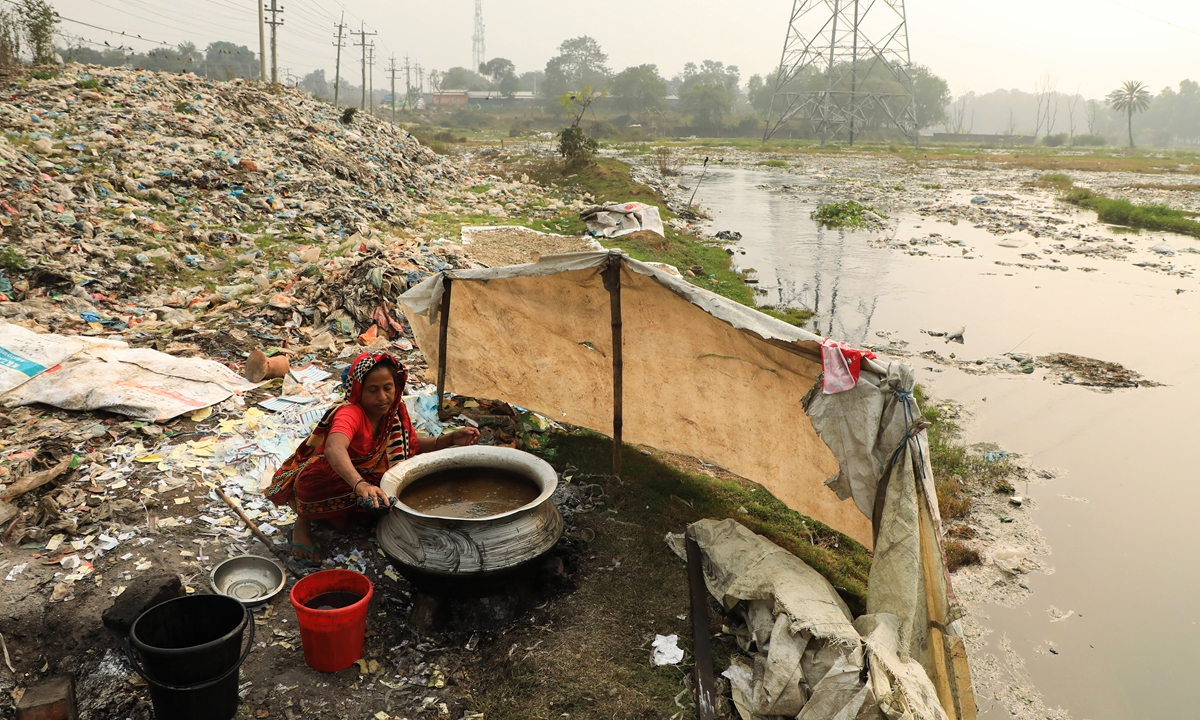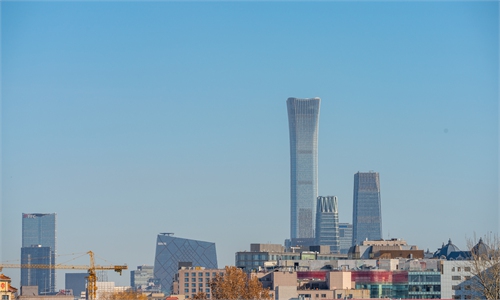Pollution major killer in 2019: study
One out of 6 premature deaths stemmed from human-created waste

A woman is seen working around a plastic-polluted area in Gazipur, Bangladesh on February 8, 2022. Water pollution and overpopulation in the country lead to poor drainage systems. Without any action, the total financial loss due to river pollution would be $51 billion over the next 20 years, said the World Bank. Photo: VCG
Pollution caused some 9 million people to die prematurely in 2019, according to a new global report published Wednesday, with experts raising alarm over increasing deaths from breathing outside air and the "horrifying" toll of lead poisoning.Human-created waste in the air, water and soil rarely kills people immediately, but causes instead heart disease, cancer, respiratory problems, diarrhea and other serious illnesses.
The Lancet Commission on pollution and health said the impact from pollution on global health remains "much greater than that of war, terrorism, malaria, HIV, tuberculosis, drugs and alcohol."
Pollution is an "existential threat to human health and planetary health, and jeopardizes the sustainability of modern societies," it added.
In general, the review found, air pollution - accounting for a total of 6.7 million deaths globally in 2019 - was "entwined" with climate change because the main source of both problems is burning fossil fuels and biofuels.
"If we can't manage to grow in a clean and green way, we're doing something terribly wrong," said the report's lead author Richard Fuller, of the Global Alliance on Health and Pollution, adding that chemical pollution also harms biodiversity - another major global threat.
"These things are terribly connected and strategies to deal with one have ripple effects all the way through," he said.
Overall, one in six premature deaths globally - or 9 million - were caused by pollution, a figure unchanged since the last assessment in 2015.
Researchers noted a reduction in mortality linked to indoor air pollution, unsafe drinking water and inadequate sanitation, with major improvements seen in Africa.
But early deaths associated with industrialization - outdoor air and chemical pollution - are on the rise, particularly in southern and eastern Asia.
Ambient air pollution caused some 4.5 million deaths in 2019, according to the study, published in Lancet Planetary Health, compared with 4.2 million in 2015 and just 2.9 million in 2000.
Chemical pollution is also increasing, with lead poisoning alone causing 900,000 deaths. Even that, the report warned, is likely a "substantial undercount" in light of new research suggesting there is no safe level of exposure.
Algeria banned lead in petrol in 2021, the last country to do so. But people continue to be exposed to the toxic substance, largely due to unregulated recycling of lead-acid batteries and e-waste. Contaminated culinary spices are also a culprit.
"The fact that lead is getting worse, mostly in poorer countries, and ramping up in terms of the number of deaths, is horrifying," said Fuller.
Heart disease is the cause of almost all early deaths from exposure to lead, which hardens arteries, said Fuller.
But elevated lead levels in blood - estimated to affect hundreds of millions of children - also harm brain development and are linked to serious losses of cognitive function.
AFP



